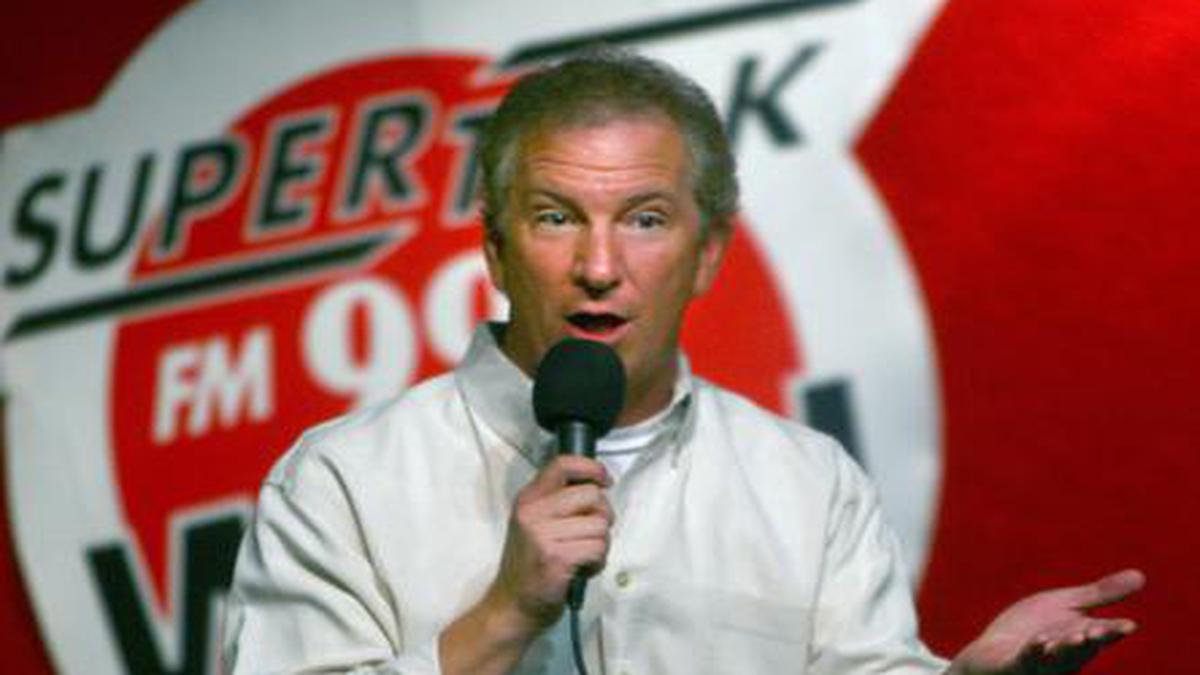NASHVILLE, TENNESSEE - Phil Valentine, a conservative radio host from Tennessee who was skeptical of vaccines until he contracted COVID-19, has died. He was then 61 years old.
On Saturday, Super Talk 99.7, which starred with the popular conservative radio host, tweeted: "We are devastated to report that our host and friend Phil Valentine has passed away." "Prayers and thoughts are needed for the family on Valentine's Day."
Valentine has previously expressed doubts about the coronavirus vaccination. However, after testing positive for COVID-19 and before going to the hospital, he advised his listeners to consider the following: “If I buy this COVID item, is there a chance of it? to die? In this case, he recommended that they be vaccinated. He said he decided not to get the vaccine because he believed he would not die.
Mark Valentine said his brother wished he had become a "stronger supporter of vaccination" after Valentine's transfer to the nursing unit intensified.

“I'm sure if he could tell you, he would tell you to get the vaccine. Don't worry about politics. On July 25, Mark Valentine told the Tennessean: "Stop worrying about all the conspiracy theories."
“He would like him to insist more on vaccinations. Take a look at the data, said Mark Valentine.
My brother refuses to be vaccinated: I asked why. Here are his excuses. Like my reviews.
A radio host for 20 years, Valentine rose to fame as a Tory talk show host in Nashville in 2001 after opposing the state income tax planned by the Republican governor. Don Sandqvist at the time.
The Valentine Show became a national show that aired on 100 stations for 12 years. Valentine was given a three-year contract in 2019 to stay on Super Talk 99.7 WTN at the end of her stay.
Valentine told Tennessean four years ago that his mother's death in a car crash prompted him to leave his small North Carolina community.
“Everything is fine in my hometown, but the main thing is the big markets,” she said, said Valentin. "I did not accept it until my mother passed away."
Valentine wanted to be a rock star since she was a child and started performing in bands at the age of 13.
After a friend Steve Brown told him, "You have a deep voice," he dropped out of college and went to broadcast school. Why not try your hand at the radio? "
Valentine became a fiction writer and podcaster towards the end of his career, teaming up with his son Campbell to share stories on historical and other non-political topics.
When they joked about their connection on the father-son PodGOATs podcast, the elder Valentine softened.
Tennessee Governor Bill Lee and Senators Bill Hagerty and Marsha Blackburn expressed their condolences on Twitter.
Senator Marsha Blackburn tweeted: "Phil Valentine was a visionary in the Conservative movement and had a huge impact on the lives of many Tennessee residents." “My sincere condolences and prayers go out to Phil's wife, Susan, and their family. In this terrible time, may they be comforted and surrounded by love.
On Saturday, Super Talk 99.7, which starred with the popular conservative radio host, tweeted: "We are devastated to report that our host and friend Phil Valentine has passed away." "Prayers and thoughts are needed for the family on Valentine's Day."
Valentine has previously expressed doubts about the coronavirus vaccination. However, after testing positive for COVID-19 and before going to the hospital, he advised his listeners to consider the following: “If I buy this COVID item, is there a chance of it? to die? In this case, he recommended that they be vaccinated. He said he decided not to get the vaccine because he believed he would not die.
Mark Valentine said his brother wished he had become a "stronger supporter of vaccination" after Valentine's transfer to the nursing unit intensified.
“I'm sure if he could tell you, he would tell you to get the vaccine. Don't worry about politics. On July 25, Mark Valentine told the Tennessean: "Stop worrying about all the conspiracy theories."
“He would like him to insist more on vaccinations. Take a look at the data, said Mark Valentine.
My brother refuses to be vaccinated: I asked why. Here are his excuses. Like my reviews.
A radio host for 20 years, Valentine rose to fame as a Tory talk show host in Nashville in 2001 after opposing the state income tax planned by the Republican governor. Don Sandqvist at the time.
The Valentine Show became a national show that aired on 100 stations for 12 years. Valentine was given a three-year contract in 2019 to stay on Super Talk 99.7 WTN at the end of her stay.
Valentine told Tennessean four years ago that his mother's death in a car crash prompted him to leave his small North Carolina community.
“Everything is fine in my hometown, but the main thing is the big markets,” she said, said Valentin. "I did not accept it until my mother passed away."
Valentine wanted to be a rock star since she was a child and started performing in bands at the age of 13.
After a friend Steve Brown told him, "You have a deep voice," he dropped out of college and went to broadcast school. Why not try your hand at the radio? "
Valentine became a fiction writer and podcaster towards the end of his career, teaming up with his son Campbell to share stories on historical and other non-political topics.
When they joked about their connection on the father-son PodGOATs podcast, the elder Valentine softened.
Tennessee Governor Bill Lee and Senators Bill Hagerty and Marsha Blackburn expressed their condolences on Twitter.
Senator Marsha Blackburn tweeted: "Phil Valentine was a visionary in the Conservative movement and had a huge impact on the lives of many Tennessee residents." “My sincere condolences and prayers go out to Phil's wife, Susan, and their family. In this terrible time, may they be comforted and surrounded by love.
Comments
Post a Comment